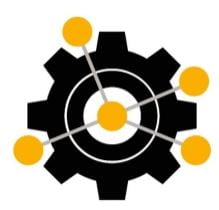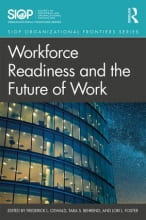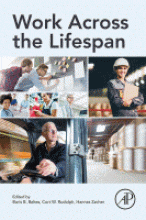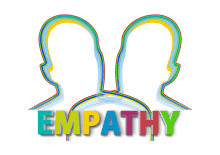Date: Friday, February 1, 2019By: Justin Sabree The Industrial-Organizational Psychology program at Georgia Tech recently hosted a series of speakers on modern team research in a wide variety of contexts. Below, we briefly outline these talks. Scott Tannenbaum, President and Co-Founder of the consulting firm, gOE (the Group for Organizational Effectiveness) discussed his experience solving … Continue reading “Modern Teams Speaker Series”
Advanced Settings Plugin Blog Posts
Network Research Highlight: Creating Enriched Jobs
By: Elizabeth Moraff An enriched work design is one in which work roles provide employees with autonomy, task variety, and opportunities to use and develop skills. Despite a wealth of literature pointing towards the benefits of enriched work design, low-quality and poorly-designed jobs continue to pervade the global workspace (Parker, Andrei, & Broeck 2019). Further, … Continue reading “Network Research Highlight: Creating Enriched Jobs”
Workforce Readiness and the Future of Work
Date: Tuesday, January 29, 2019 Network Member, Fred Oswald; WSC Advisory Council member, Tara Behrend; and Lori Foster released the first edition of their edited book, Workforce Readiness and the Future of Work. The book features 13 chapters tackling topics including the roles of technology, education, and policy in modern workforce readiness. The book concludes with a … Continue reading “Workforce Readiness and the Future of Work”
Healthcare Goes High-Tech
By: Catherine Liu Modern healthcare organizations are adapting and innovating in response to the boom in artificial intelligence. A recent paper details two distinct branches of use for artificial intelligence in healthcare: virtual and physical. The virtual branch encompasses the use of deep learning in information management, management of electronic health records, and guidance of physicians in decision … Continue reading “Healthcare Goes High-Tech”
Network Research Highlight: Vocational Interests and Fit
By: Keaton Fletcher Members of the Work Science Center Advisory Council, Tara Behrend and David Blustein, recently published a groundbreaking study, led by Alexander Glosenberg, in the Journal of Vocational Behavior exploring the fit between individuals’ vocational interests and their current careers across the globe. Vocational interests are essentially common aspects of jobs or careers that … Continue reading “Network Research Highlight: Vocational Interests and Fit”
Work Across the Lifespan
Date: Tuesday, January 22, 2019 Network members Cort Rudolph, Hannes Zacher, and Boris Baltes released their edited book, Work Across the Lifespan. The book features 26 chapters, including work from many Work Science Center Network Members. Content ranges from theoretical perspectives on aging at work to applications of a lifespan perspective on job design, performance management, and team … Continue reading “Work Across the Lifespan”
The Science Behind Uber’s Nudges
By: Brian Hengesbaugh Behavioral science has long been used by media and advertisers to influence the decision-making of consumers (e.g., pricing items at 99 cents instead of the full dollar). The growing “gig economy,” in which temporary jobs are completed by independent contractors instead of full-time employees, has led employers to look towards behavioral science … Continue reading “The Science Behind Uber’s Nudges”
Network Research Highlight: Understanding Empathy with Malissa Clark
By: Keaton Fletcher In a recent review accepted for publication in the Journal of Organizational Behavior, Dr. Malissa Clark (Work Science Center Network Member) and colleagues provide a clearer understanding of the nature and role of empathy in the workplace. Empathy is a complex phenomenon with affective (e.g., experiencing others’ emotions), behavioral (e.g., demonstrating you share another’s … Continue reading “Network Research Highlight: Understanding Empathy with Malissa Clark”
Millennial cyberloafing: Why it’s costly & how to approach the problem
By: Jacqueline Jung With access to technology and the internet nearly ubiquitous in the modern workforce, organizations are struggling with a relatively new phenomenon: cyberloafing. Cyberloafing is the use of technology at work for non-work-related purposes (e.g., checking social media, watching YouTube videos). Cyberloafing may reduce productivity and has been estimated to cost U.S. organizations … Continue reading “Millennial cyberloafing: Why it’s costly & how to approach the problem”








